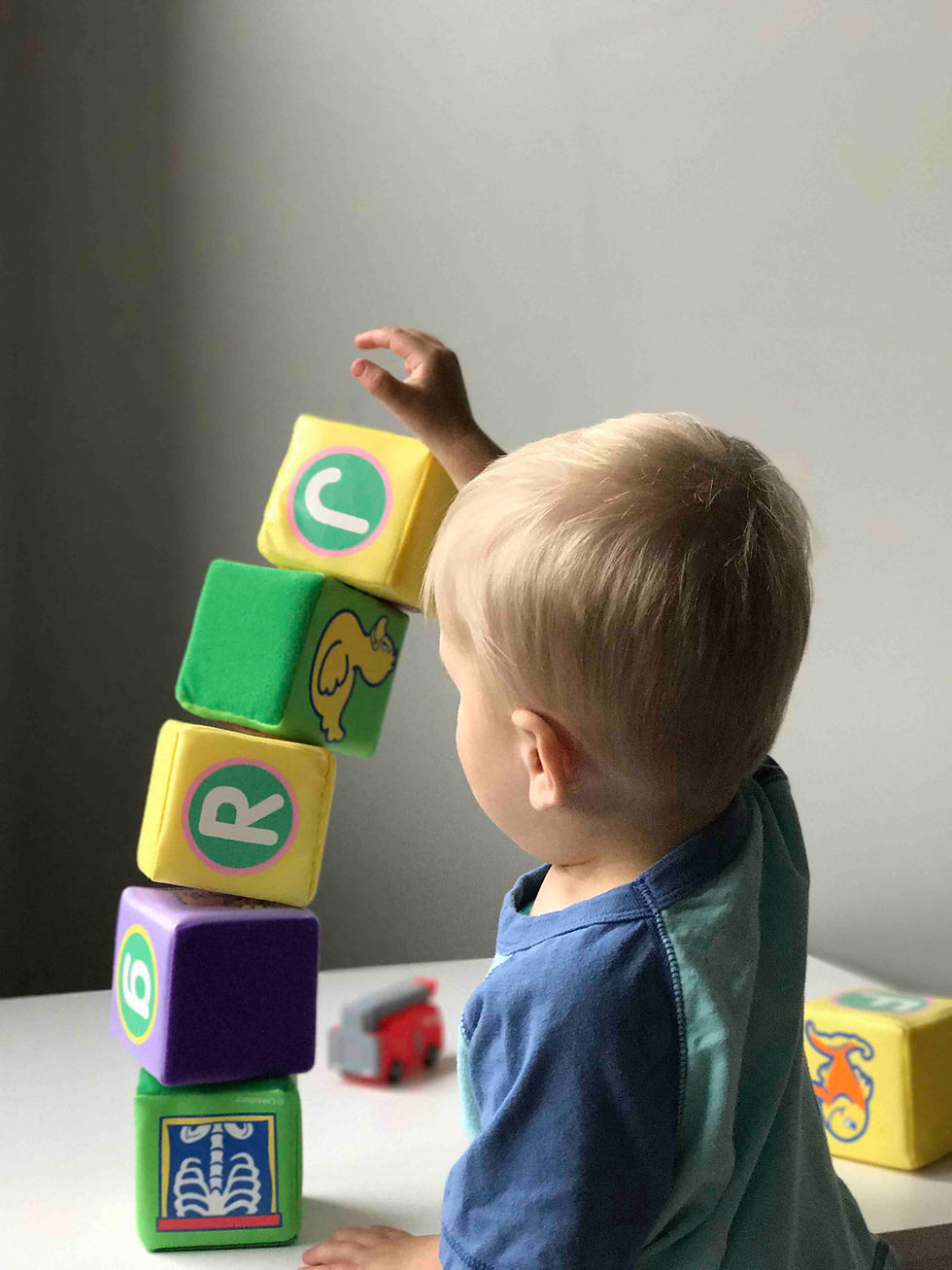It feels like just yesterday my little man was happy and bright and nothing could upset him. He was perfectly content with nursing, chewing on toys, and following his schedule. I actually said to myself: "Other moms must be exaggerating when it comes to their child's behavior, because Rowan (my son) is PERFECT!"
Please note: I'm actually laughing aloud as I type this now.
Low and behold, 20 months hit us like a tidal wave! All of a sudden my sweet boy, who loved to snuggle with his Mommies, was possessed. He would scream for no reason. Anytime you told him "no" it was like I had lit him on fire. He was a force to be reckoned with.
In an effort to regain my control (QUICKLY), I did a ton of research on behavioral interventions and emotional learning.
I mean, I'm a therapist. I've worked in all kinds of settings, including elementary schools. I had shaped children's behavior for a living! But my own child threw me for a loop.
I found that I related most to the methods of "Mom's On Call". I used the first book when I first had Rowan. As first time moms, we had no clue what we were doing- and I mean NO CLUE. Since "Mom's On Call" had worked so well for us in the newborn/infant stage, I decided to look at their toddler book as well. The link for the toddler book is here! I used their methods as my main framework and then added in some of my own ideas.
Below is a list of the tools and interventions that I used that actually worked.
1. Determine what boundaries/ expectations you want to put in place for your child.
My wife and I decided that we wanted to implement:
1. You will listen to Mommies
2. We do not hurt others (This came as a result of him rough-housing with our dog a few times).
*Start out small with 1 or 2 things that are a top priority for you.*
2. Have conversations with your child when they're calm to set expectations.
So you might be thinking that I'm crazy. "What 20 month old is going to have a conversation with their parents?", "They can't even understand me yet!", "This lady is bonkers."
I hear you. But trust me.
In our house, we have a very structured bedtime routine (Thank you "Moms On Call"!). It's been in place since Rowan was 8 weeks old. It's not that we do everything to the minute, but we have a series of events that are followed every night before bedtime. For more on Rowan's bedtime routine, click here.
We made it a point during the bedtime routine to talk about the expectations that we had for Rowan and his behavior and what would happen if he struggled to meet those expectations. We simply communicated that he was expected to follow directions from his mommies and that he wasn't to hurt others. Call me crazy- but I could see him hearing me!

Don't mind me in the background trying to get my life together while he's destroying his GG's house!
3. Talk about the consequences of not listening.
We also introduced the concept of time-out and how it would work. We showed him the simmer-time (or time-out) area and explained that he would be given one warning and if he did not "listen to mommies", he would go in simmer-time.
*Simmer time is a term that we picked up from Mom's On Call! Purchase the book to learn more about it!*
4. Don't react to your child's bad behavior.
I think when our child does something bad, we tend to try to get them to stop. And since they usually never stop, it causes us as parents to become increasingly frustrated. This can result in a power struggle- which is NEVER GOOD.
Instead of reacting or trying to continuously redirect their behavior, RESPOND with a calm neutral face and body language. Give them their warning. If they participate in the behavior again, calmly place them in time out.
5. Thank your child for listening to you-when they actually listen.
People may disagree with this perspective, but I always thank Rowan for listening to me or following directions. Some people believe that you shouldn't thank your children for doing something that they're "supposed to be doing". However, I'm a true believer in showing appreciation to others - so why shouldn't I apply that same mindset to my child?
Believe it or not, in CONSISTENTLY following the 5 steps listed above, I saw a huge change in Rowan's behavior. He knew that I meant what I said and that I would always follow through. While he tested the boundaries in the beginning, he quickly learned that he would not be successful with negative behavior.
Now take it and run Mommas! You've got this!

Comments